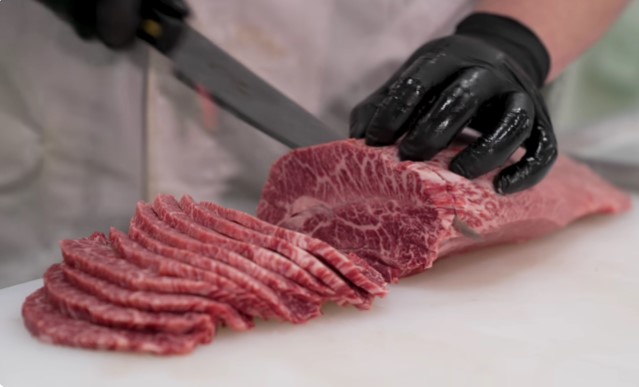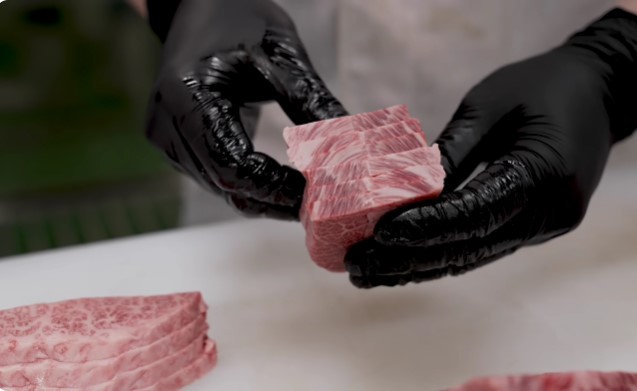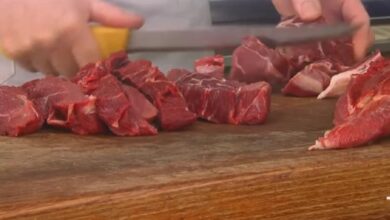Is Beef Halal
The question of whether beef is halal is significant for Muslims who adhere strictly to dietary laws defined by Islamic teachings. These laws, derived from the Quran and Hadith, outline what is permissible (halal) and what is forbidden (haram) to consume. Understanding the principles behind halal meat, including the specific conditions required for beef to be considered halal, is essential for Muslims seeking to maintain their religious obligations and dietary practices. This article delves into the criteria that make beef halal, the religious and ethical significance of consuming halal meat, and provides guidance on how and where to buy halal beef.

What is Halal?
The term “halal” means permissible or lawful in Arabic. For meat to be considered halal, it must meet specific requirements set forth in Islamic law. These requirements ensure that the meat is prepared and consumed in a way that is clean, ethical, and religiously compliant.
Principles of Halal Meat

Slaughter Method (Zabiha or Dhabiha)
Halal meat must be obtained through a specific method of slaughter known as Zabiha. This involves a Muslim making a swift, deep incision across the animal’s throat, windpipe, and blood vessels in the neck while invoking the name of Allah by saying “Bismillah” (In the name of Allah). This method aims to minimize the animal’s suffering and ensure that the blood drains from the body, as consuming blood is prohibited in Islam.
Animal Health and Quality
The animal must be healthy at the time of slaughter. This ensures that the meat is safe for consumption and free from diseases. Only certain animals, such as cattle, sheep, goats, and poultry, are considered halal, while pork and its by-products are strictly forbidden.
Draining of Blood
One of the critical aspects of halal meat preparation is the complete draining of blood from the carcass. Blood is considered impure and is prohibited in Islamic dietary laws. The thorough draining of blood during the Zabiha process ensures that the meat is clean and suitable for consumption.
Intention and Pronouncement of Allah’s Name
The person performing the slaughter must have the intention of making the meat halal and must pronounce the name of Allah before making the cut. This emphasizes the religious significance of the act and ensures that the meat is prepared in accordance with Islamic law.
Religious and Ethical Significance of Halal Meat
Religious Obligation
For Muslims, consuming halal meat is not just a dietary preference but a religious obligation. Adhering to halal dietary laws is a way of submitting to the will of Allah and following the teachings of Islam. It reflects a conscious effort to live in accordance with the principles of the faith.
Purity and Cleanliness
Halal meat is associated with purity and cleanliness. The prescribed method of slaughter and the careful selection of healthy animals contribute to the perception of halal meat as a wholesome and untainted source of sustenance.
Ethical Treatment of Animals
The Zabiha method of slaughter is designed to be humane, emphasizing the welfare of the animal. This ethical treatment aligns with Islamic teachings, fostering a sense of responsibility and compassion towards all living beings.
Spiritual and Moral Reasons
Consuming halal food is seen as a means of maintaining spiritual and moral integrity. It reinforces the idea that individuals should be mindful of their dietary choices, ensuring that their sustenance is obtained through lawful and ethical means.
Where to Buy Halal Beef
Finding halal beef can be straightforward if you know where to look. Many supermarkets now offer halal-certified products, and there are specialized halal meat stores in most cities. When purchasing halal beef, it is essential to look for certification from reputable halal organizations to ensure that the meat meets all the necessary criteria.
- Local Halal Butchers: Specialized stores that cater specifically to the Muslim community.
- Halal Sections in Supermarkets: Many large supermarkets have a halal section with certified products.
- Online Halal Meat Suppliers: Websites that deliver halal meat directly to your door.
FAQs
What is halal beef?
Halal beef is meat from cattle that have been slaughtered according to Islamic law. This includes the recitation of a prayer, humane treatment of the animal, and complete drainage of blood from the carcass.
Why is the method of slaughter important in halal?
The slaughter method ensures that the animal is killed humanely and that all blood is drained from the body, which is a requirement for meat to be considered halal.
Can any Muslim slaughter an animal for it to be halal?
Yes, any adult Muslim who is of sound mind and knows the proper procedure can perform the slaughter.
Are all parts of the cow halal?
Not necessarily. While the majority of the cow is halal if properly slaughtered, certain parts like the blood and some organs might be considered haram.
Is halal beef different in taste from non-halal beef?
Halal beef may taste different due to the method of slaughter and the complete drainage of blood, which some consumers find affects the flavor and texture.
Can non-Muslims consume halal beef?
Yes, non-Muslims can consume halal beef. It is simply meat that adheres to Islamic dietary laws and is considered clean and permissible.
Where can I buy halal beef?
Halal beef can be purchased at halal butcher shops, certain supermarkets, and online retailers that specialize in halal products.
Is halal beef healthier than non-halal beef?
Some believe halal beef is healthier because it involves complete blood drainage, reducing the risk of bacteria and ensuring cleaner meat. However, scientific consensus on this is varied.
How can I verify if the beef I buy is halal?
Look for halal certification labels from recognized certification bodies. These ensure the meat has been processed according to Islamic law.
What makes a product halal-certified?
A product is halal-certified if it adheres to Islamic law throughout its entire production process, from the slaughter of the animal to packaging, ensuring no contamination with non-halal substances.
Is kosher meat the same as halal meat?
While both have strict guidelines, kosher meat is not considered halal due to differences in the slaughtering prayers and the allowance of certain ingredients in kosher that are not permissible in halal.
Can halal beef be cross-contaminated?
Yes, if halal beef is processed in facilities that also handle non-halal products without proper segregation, it can be cross-contaminated, making it non-halal.
Do all Muslims eat halal beef?
Muslims are required to consume halal meat. However, in some circumstances, like lack of availability, they might consume non-halal meat, but this is generally avoided.
Are there different standards for halal certification?
Yes, different halal certification bodies may have varying standards, but all adhere to the basic principles of Islamic law regarding cleanliness, humane treatment, and proper slaughter.
Is the process of obtaining halal certification complicated?
The process involves thorough inspection and compliance with Islamic law, but it is streamlined by certification bodies. It typically includes auditing the entire production process.
Why is halal certification important for consumers?
Halal certification ensures that the products meet Islamic dietary laws, providing Muslim consumers with peace of mind that they are adhering to their faith while consuming these products.
Conclusion
In conclusion, beef can be considered halal if it meets the strict requirements outlined in Islamic law. These include the method of slaughter, the health of the animal, the draining of blood, and the pronouncement of Allah’s name. For Muslims, consuming halal meat is a religious obligation that underscores their commitment to the principles of Islam. It is also an ethical choice that emphasizes purity, cleanliness, and humane treatment of animals. By understanding and adhering to these principles, Muslims can ensure that their dietary practices align with their faith.
Read also: Beef Tallow Nutrition Facts





